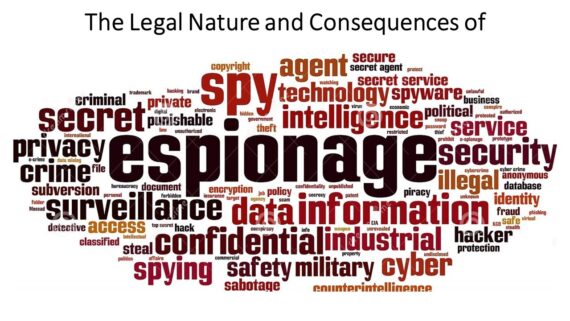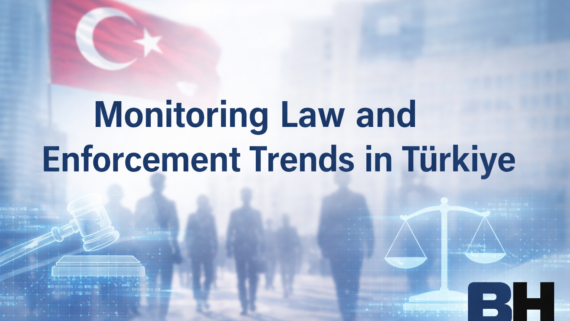Türkiye’s Cybersecurity Law introduces a comprehensive regulatory framework aimed at strengthening national digital security and managing cyber risks across both public and private sectors. The statute defines institutional responsibilities and establishes new supervisory and coordination mechanisms for cybersecurity governance. Companies operating critical information systems and digital infrastructures are subject to expanded compliance duties, including preventive measures and incident-reporting obligations. Enhanced enforcement powers and administrative sanctions reflect a more interventionist regulatory approach. The framework aligns in part with international cybersecurity standards while retaining country-specific regulatory features. Cross-border operations, foreign investors, and technology providers are particularly affected by the law’s extraterritorial and compliance implications. The interaction between cybersecurity regulation, data protection rules, and corporate governance obligations creates additional legal complexity for regulated entities. Bıçak Law provides legal advisory services assisting businesses in navigating these cybersecurity requirements within Türkiye’s evolving regulatory landscape.
Cybersecurity in Turkey: Key Legal Developments
Cybersecurity has become an increasingly critical issue for governments, businesses, and individuals worldwide. In Turkey, the newly enacted Cybersecurity Law, accepted at the Turkish Parliament on 12 March 2025 and published in the Official Gazette on 19 March 2025, introduces significant changes aimed at enhancing national digital security, preventing cyber threats, and aligning with global cybersecurity standards. This article explores the key aspects of the new cybersecurity regulations in Turkey, their impact on businesses, and the measures required to ensure compliance.
Why Was a New Cybersecurity Law Necessary?
With the rapid expansion of digital infrastructure, Turkey has seen a rise in cyber threats, including data breaches, hacking incidents, and ransomware attacks. The previous legal framework was fragmented, relying on multiple laws such as the Turkish Penal Code, Personal Data Protection Law (KVKK), and the Law on Electronic Communications. However, the evolving nature of cyber risks necessitated a comprehensive cybersecurity law to provide clear guidelines for protection, monitoring, and enforcement.
Key Provisions of the New Cybersecurity Law
The new cybersecurity law, accepted at the Turkish Parliament on 12 March 2025, introduces several important provisions that organizations must be aware of. The law imposes stricter cybersecurity obligations on industries deemed critical, including finance, healthcare, energy, and telecommunications. Companies in these sectors must implement advanced security protocols and undergo regular cybersecurity audits. The Information and Communication Technologies Authority (BTK) has been granted extended powers to monitor and intervene in cybersecurity incidents and can now mandate immediate security measures for organizations deemed vulnerable to cyber threats.
All organizations must report cyber incidents to the designated cybersecurity authority within a specified timeframe, and failure to report security breaches may result in heavy penalties. The new law strengthens the obligations under the KVKK (Personal Data Protection Law) by imposing stricter data security requirements, requiring businesses to take proactive steps to prevent unauthorized access, data leaks, and cyberattacks. International companies operating in Turkey must now store critical user data within the country and comply with Turkish cybersecurity standards. Non-compliance may lead to access restrictions or fines.
Impact on Businesses in Turkey
The new law imposes greater responsibilities on businesses, requiring them to invest in cybersecurity infrastructure and comply with stricter risk management policies. Companies must conduct regular cybersecurity assessments and penetration tests. They must appoint a Chief Information Security Officer (CISO) or a Data Protection Officer (DPO) to oversee security measures. They should implement secure cloud storage policies and encryption protocols and train employees on cybersecurity awareness and best practices.
Potential Penalties for Non-Compliance
Organizations failing to comply with the new cybersecurity regulations may face fines and sanctions based on the severity of the security breach. They may also be subject to temporary or permanent service restrictions for critical sectors and legal liabilities, including lawsuits for damages caused by data breaches.
Ensuring Compliance
Turkey’s new Cybersecurity Law, accepted at the Turkish Parliament on 12 March 2025 and published in the Official Gazette on 19 March 2025, marks a major step forward in securing the country’s digital ecosystem. Businesses must proactively adapt to these regulations by enhancing their cybersecurity strategies and ensuring compliance. Given the strict enforcement measures, organizations should seek legal and technical guidance to navigate the new regulatory landscape effectively.
At Bıçak Law Firm, we provide expert legal counsel on cybersecurity, data protection, and compliance strategies tailored to businesses operating in Turkey. For further guidance, feel free to contact us.
For our latest announcement on this topic, you may also read about Prof. Dr. Vahit Bıçak’s contribution to the International Comparative Legal Guide – Cybersecurity 2026, where a ten-page analysis on Türkiye’s cybersecurity laws is freely accessible online: https://www.bicakhukuk.com/en/contribution-to-international-guide-cybersecurity/.
 English
English Türkçe
Türkçe Français
Français Deutsch
Deutsch










Comments
No comments yet.